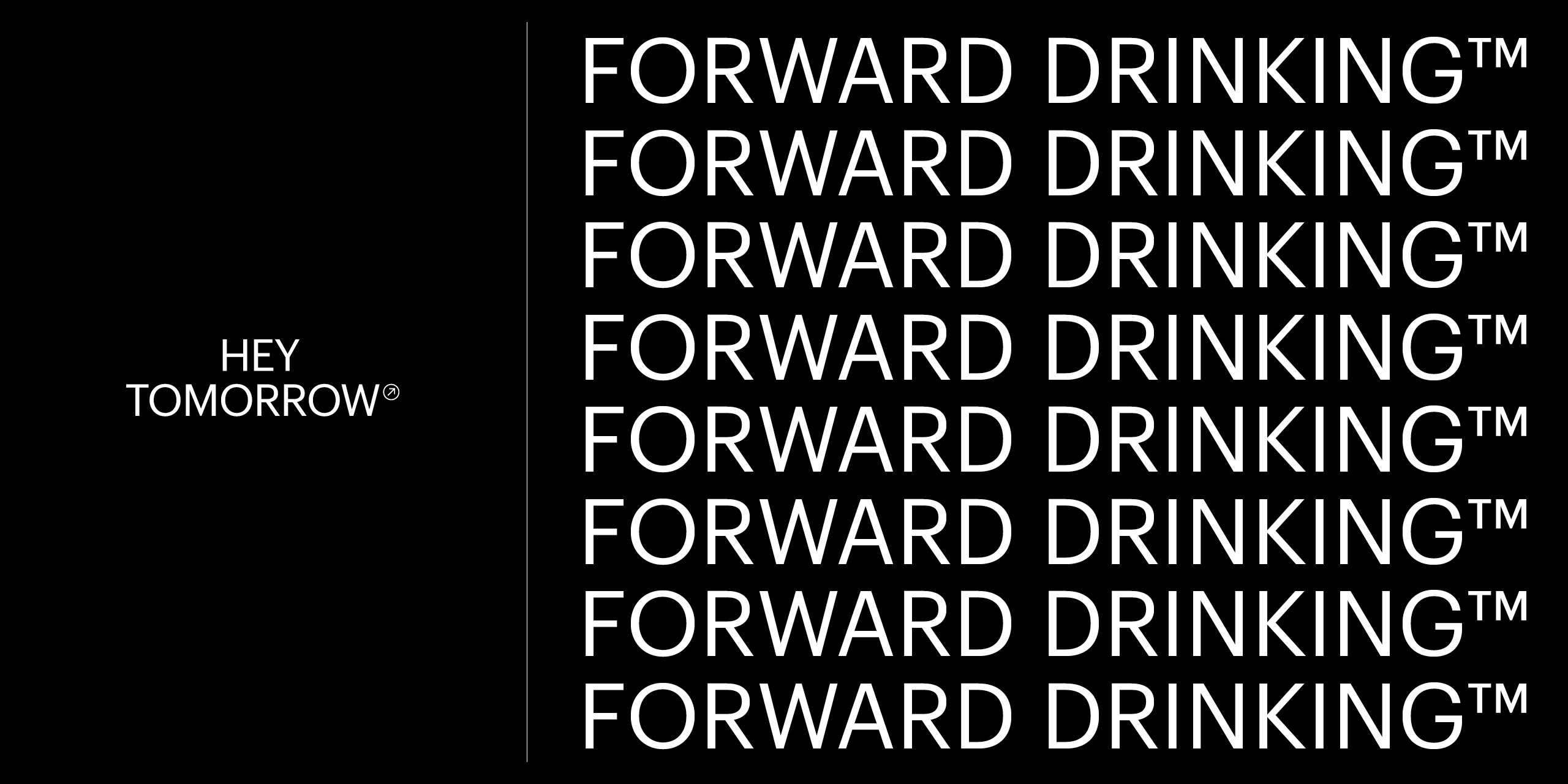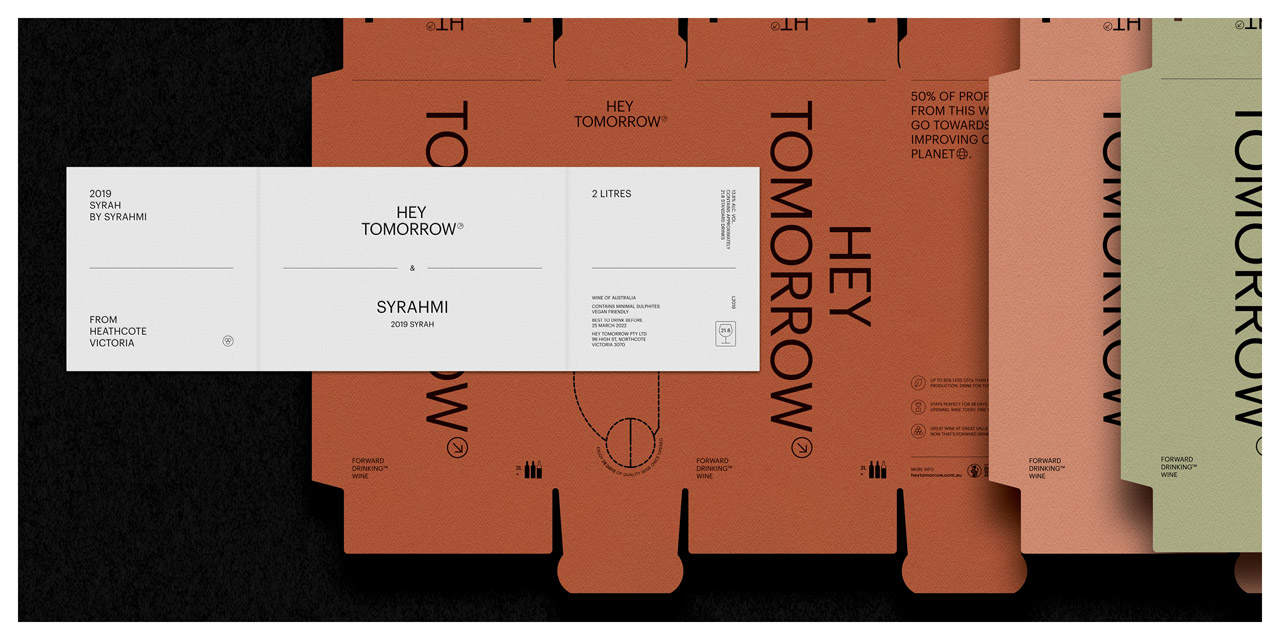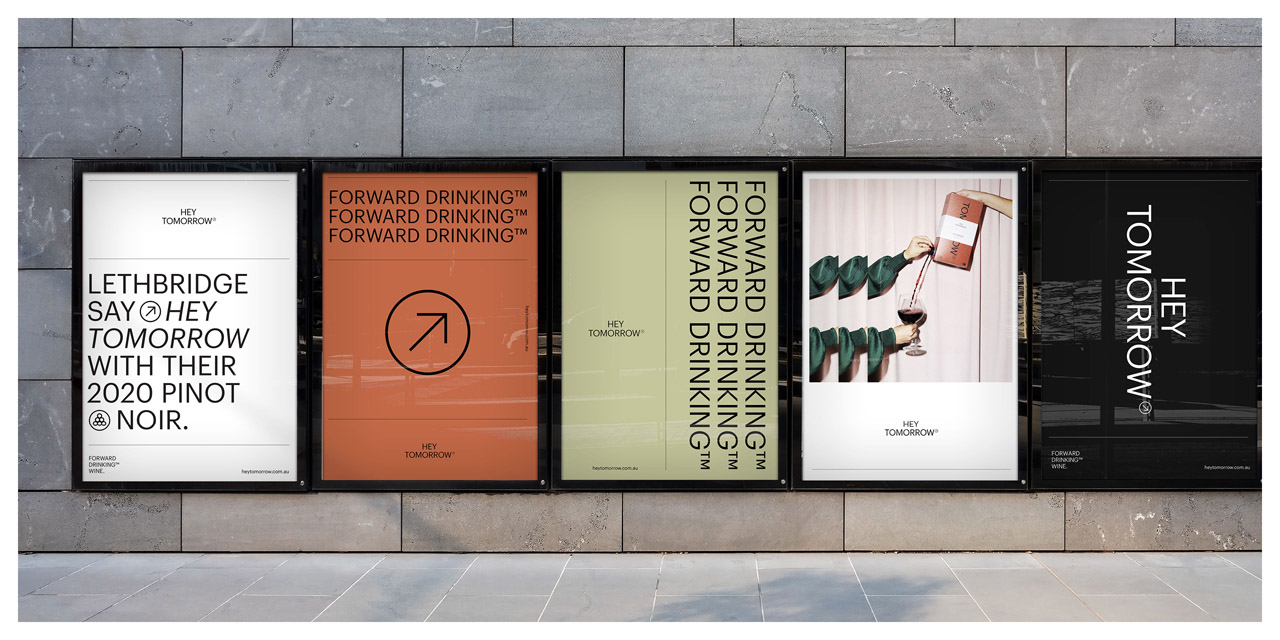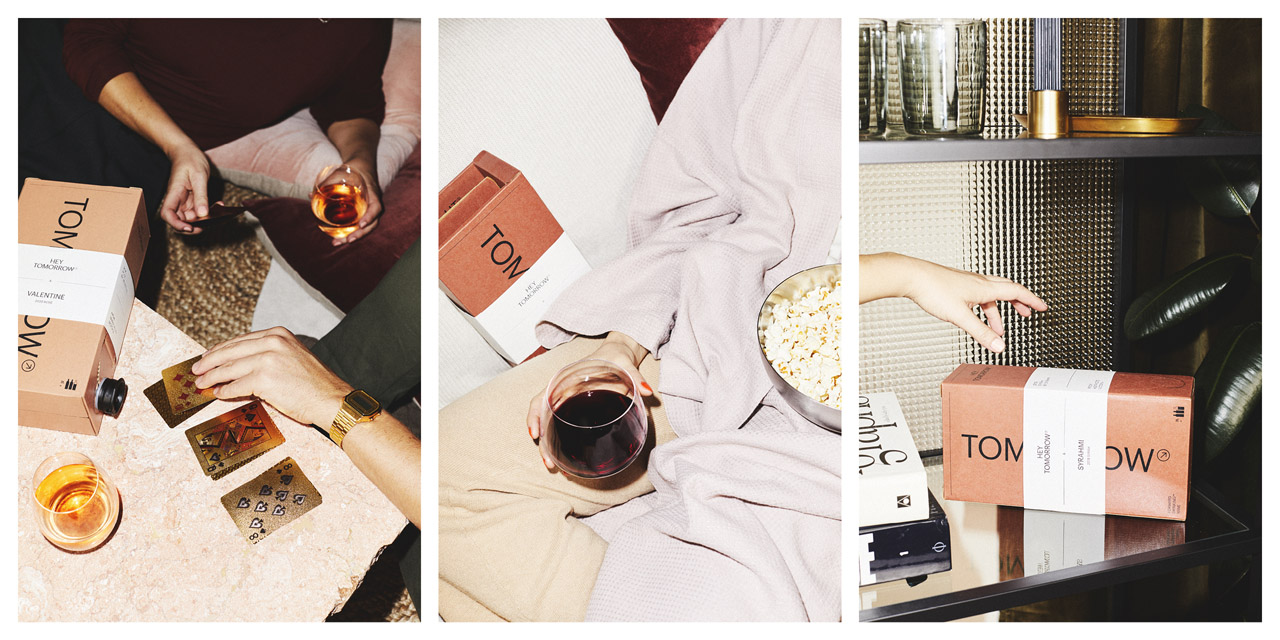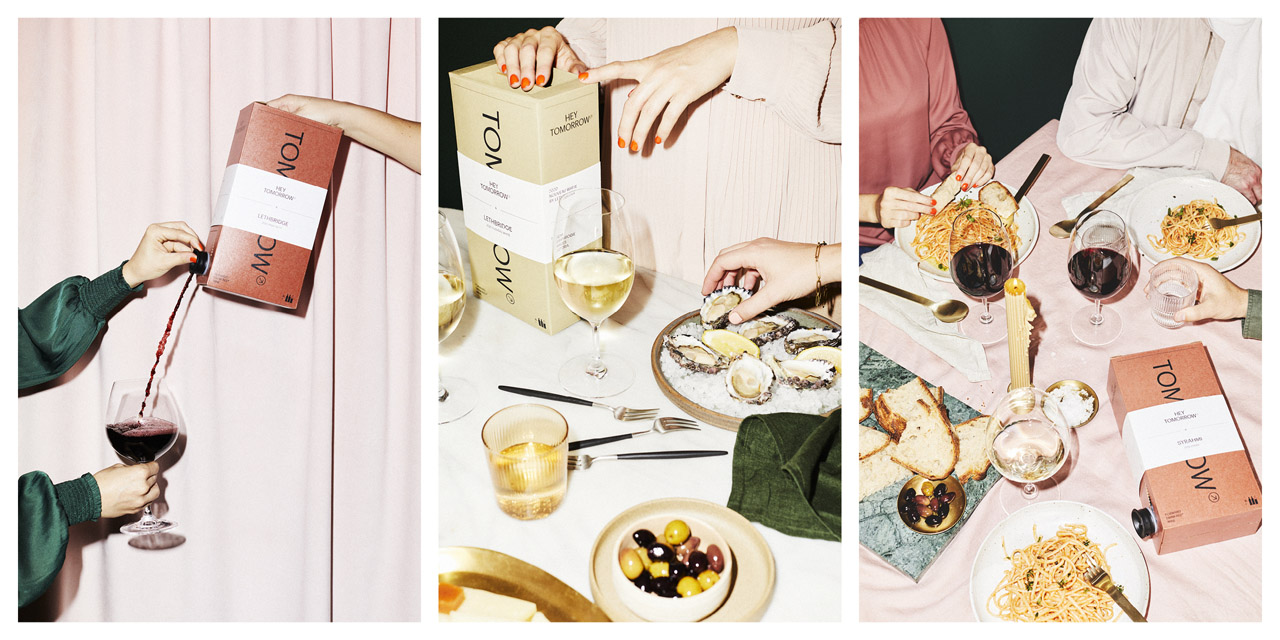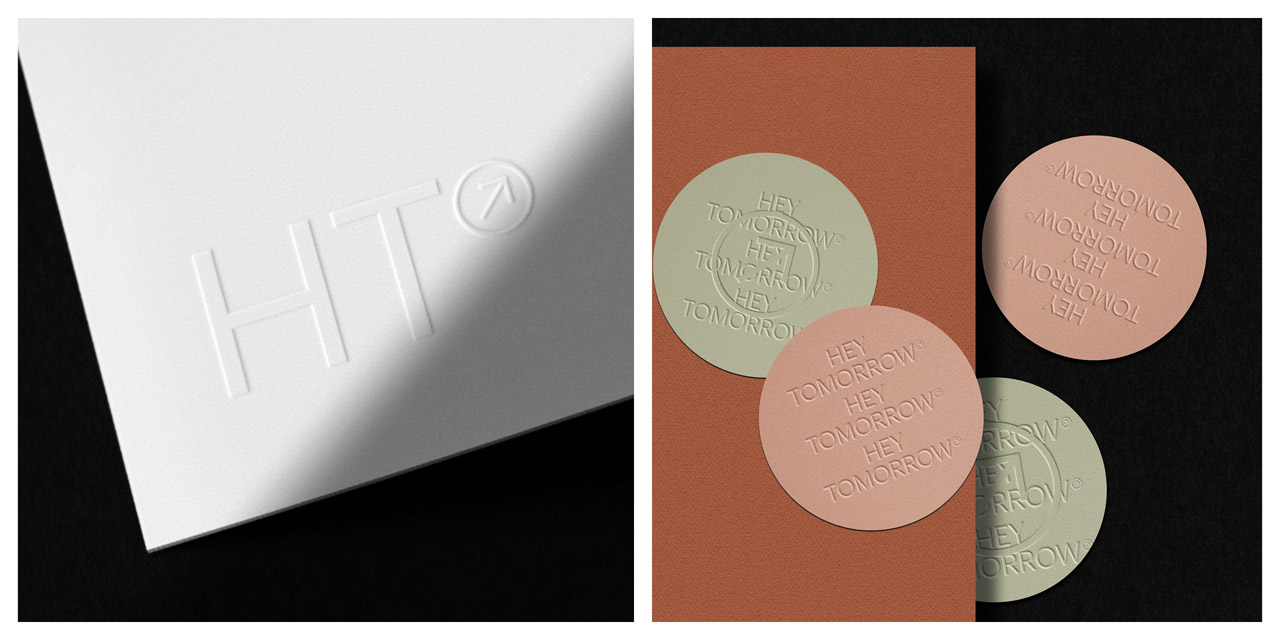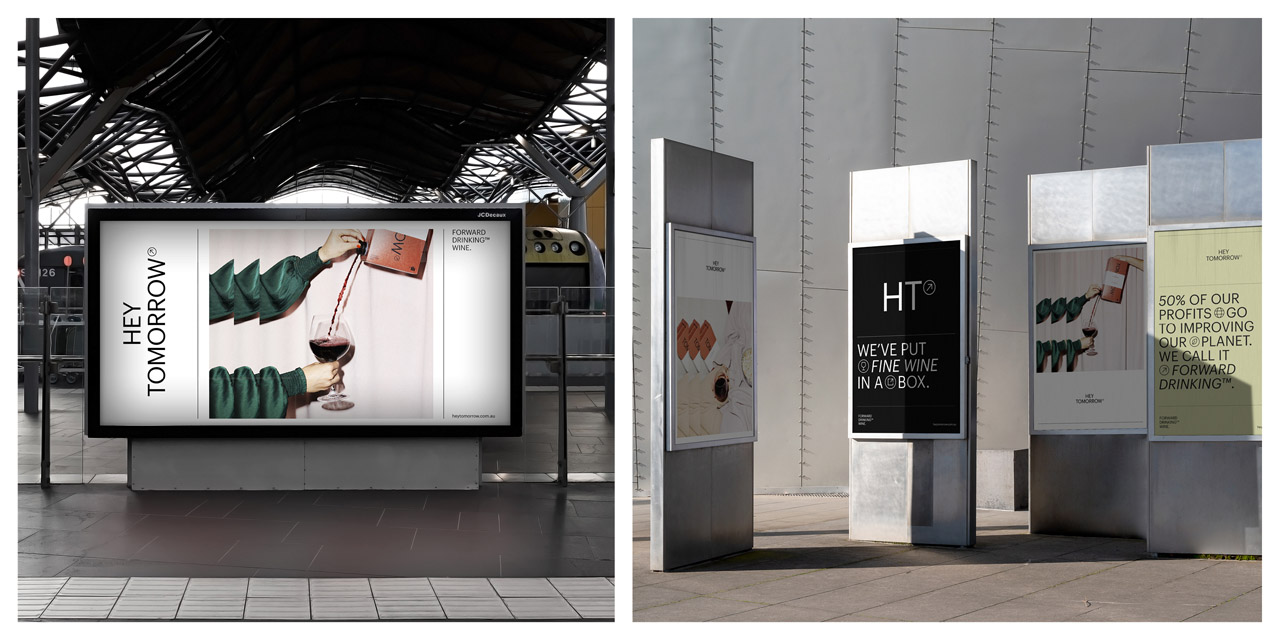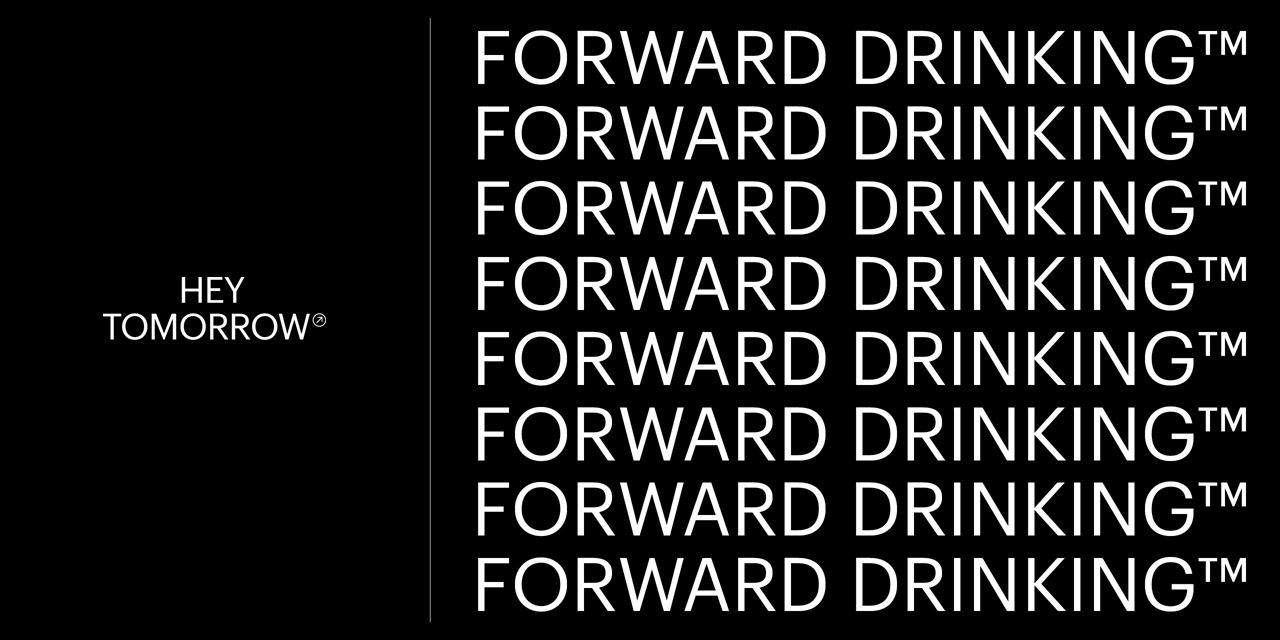To change perceptions we needed to understand them. We engaged in a robust strategy session to build an extremely strong knowledge base to move forward with confidence. The initial strategy work involved investigating the problem at hand from a local and global viewpoint, researching the competitive landscape and how that might shift moving forward, understanding our potential audiences and most importantly delivering a plan for how we will connect with them.
We had a strong strategic direction in place which helped with the naming process. From here we landed on Hey Tomorrow – a simple, conversational touch to the brand that also delivers a broader, deeper meaning. Paired with the tagline Forward Drinking™ Wine, the writing cleverly references two of the company’s key pillars; longer lasting wine and wine that considers our future.
We followed on by delivering a brand identity that oozes quality – something never seen in the boxed wine game. Minimal but tactile was the mantra for the high-quality, understated packaging printed supported by a beautifully letterpressed wrap. A key challenge to the project was a hierarchical balance between Hey Tomorrow as a brand and the winemakers themselves; through consistent typesetting and a clear hierarchy this balance was soundly achieved. We conceived and executed a photoshoot that would deliver the feeling of candid but luxurious moments. We wanted the audience to feel like they could take Hey Tomorrow to a fancy party with oysters, or prop it on the couch next to a bowl of popcorn while tuned into Netflix. The team included photographer Peter Tarasiuk and stylist Lee Blaylock.

